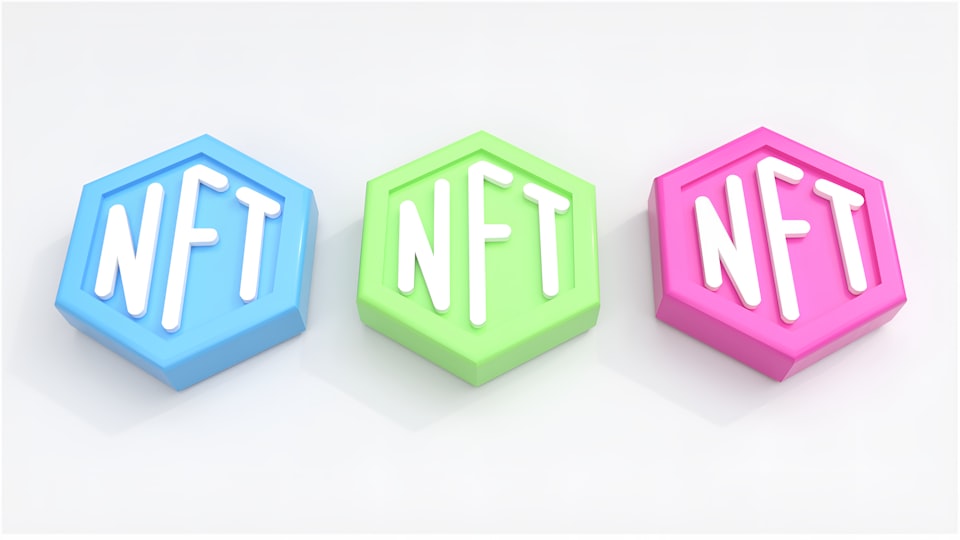Crypto Goes Mainstream: Financial Giants Embrace Digital Currencies
ne potential development is the emergence of hybrid financial products that combine traditional assets and cryptocurrencies, allowing investors to diversify their portfolios and hedge against market risks.

For years, cryptocurrencies have existed on the fringes of the financial world, viewed with skepticism and caution by traditional institutions. However, the tide is turning, and mainstream financial products are increasingly embracing digital currencies. Two industry giants, Interactive Brokers and PayPal, are leading the charge, demonstrating the growing acceptance of cryptocurrencies in the realm of mainstream finance.
Interactive Brokers: Pioneering Crypto Trading for Institutional Investors
In a move that signaled a significant shift in the financial landscape, Interactive Brokers, a prominent online trading platform, announced the launch of cryptocurrency trading services for institutional investors in September 2022. This groundbreaking step allowed clients of the brokerage firm to trade and hold Bitcoin, Ethereum, Litecoin, and Bitcoin Cash directly through their accounts.
According to a CNBC report, Interactive Brokers' decision to offer cryptocurrency trading was driven by growing demand from institutional clients seeking exposure to digital assets. By providing a regulated and secure platform for crypto trading, Interactive Brokers aimed to bridge the gap between traditional finance and the burgeoning cryptocurrency market.
"We've had a lot of demand from institutional clients and investment advisors who have been asking for the ability to trade cryptocurrency," said Steve Sanders, Executive Vice President of Marketing and Product Development at Interactive Brokers, in an interview Business Wire.
Interactive Brokers' foray into cryptocurrency trading was not without its challenges. The company had to navigate a complex regulatory landscape and implement robust security measures to ensure the safety of client funds and assets. Additionally, the inherent volatility of the cryptocurrency market posed risks that needed to be carefully managed.
PayPal: Expanding Crypto Services for Mainstream Adoption
While Interactive Brokers catered to institutional investors, PayPal took a different approach, focusing on bringing cryptocurrencies to the masses. In October 2022, the online payment giant announced the expansion of its cryptocurrency services, allowing customers to not only buy, sell, and hold cryptocurrencies but also transfer them to external wallets and make purchases with digital currencies.
This move by PayPal marked a significant step toward mainstream adoption of cryptocurrencies, providing a user-friendly and familiar platform for individuals to engage with digital assets. By integrating cryptocurrencies into its existing platform, PayPal aimed to demystify the process and make it more accessible to a broader audience.
"The shift to digital forms of currencies is inevitable, bringing with it clear advantages in terms of financial inclusion and access; efficiency, speed and resilience of the payment system; and the ability for governments to disburse funds to citizens quickly," said Dan Schulman, President and CEO of PayPal, in a company blog post.
PayPal's crypto services were initially launched in the United States, allowing users to buy, sell, and hold Bitcoin, Ethereum, Litecoin, and Bitcoin Cash. The company later expanded these services to other markets, including the United Kingdom and select European countries.
To facilitate these services, PayPal partnered with trusted cryptocurrency platforms and exchanges, leveraging their expertise in securely managing digital assets. The company also implemented robust security measures, such as multi-factor authentication and advanced fraud detection systems, to protect user funds and ensure the integrity of transactions.
The Significance of Mainstream Adoption
The entry of financial giants like Interactive Brokers and PayPal into the cryptocurrency space is significant for several reasons. First and foremost, it lends legitimacy and credibility to digital currencies, which have long been viewed as risky and speculative investments by traditional financial institutions.
By offering cryptocurrency trading and services through regulated and established platforms, these companies provide a level of trust and security that can help alleviate concerns among mainstream investors and consumers. This, in turn, can drive further adoption and integration of cryptocurrencies into the broader financial ecosystem.
Moreover, the involvement of Interactive Brokers and PayPal opens up new avenues for institutional and retail investors alike to gain exposure to digital assets. For institutional investors, Interactive Brokers' crypto trading services provide a regulated and familiar platform to diversify their portfolios and tap into the potential of cryptocurrencies.
On the other hand, PayPal's expanded crypto services democratize access to digital currencies, allowing individuals to participate in the cryptocurrency market with relative ease and familiarity. This increased accessibility can drive mainstream adoption and further normalize the use of cryptocurrencies in everyday transactions.
Challenges and Concerns
Despite the growing acceptance of cryptocurrencies in mainstream financial products, there remain several challenges and concerns that need to be addressed. Regulatory uncertainty, market volatility, and security risks continue to be key issues that institutions and consumers navigate.
Regulatory frameworks governing cryptocurrencies vary widely across jurisdictions, creating a patchwork of rules and guidelines that can hinder widespread adoption. Ongoing efforts by regulatory bodies to establish clear and consistent frameworks will be crucial in fostering trust and confidence in digital currencies.
Market volatility is another concern that has historically deterred mainstream adoption of cryptocurrencies. The prices of popular digital currencies, such as Bitcoin and Ethereum, have experienced significant fluctuations, making them a risky investment for risk-averse investors. While some argue that this volatility is inherent to emerging asset classes, others believe that greater regulatory oversight and institutional involvement could help stabilize the market.
Additionally, the decentralized nature of cryptocurrencies and the prevalence of cyber threats have raised security concerns. High-profile hacks and thefts of digital assets have underscored the importance of robust security measures and the need for increased education and awareness among users.
To address these security concerns, both Interactive Brokers and PayPal have implemented stringent measures to safeguard user funds and assets. These include multi-factor authentication, advanced encryption protocols, and partnering with reputable custodians and exchanges.
Mainstream Adoption and Institutional Investment Drivers
The growing acceptance of cryptocurrencies in mainstream financial products is being driven by a combination of factors, including increasing institutional demand, the potential for portfolio diversification, and the promise of faster and more efficient cross-border transactions.
Institutional investors, such as hedge funds, family offices, and wealth management firms, have shown a growing interest in cryptocurrencies as a means of diversifying their portfolios and potentially generating higher returns. The entry of firms like Interactive Brokers into the cryptocurrency market provides these investors with a regulated and familiar platform to gain exposure to digital assets.
Furthermore, the decentralized and borderless nature of cryptocurrencies holds the potential for faster and more efficient cross-border transactions, reducing the need for intermediaries and lowering transaction costs. This could be particularly beneficial for remittances and international payments, areas where traditional financial services have historically been costly and slow.
Future Outlook: Mainstream Integration and Collaboration
As the acceptance of cryptocurrencies in mainstream financial products continues to grow, the future outlook points towards further integration and collaboration between traditional finance and the crypto industry. Financial institutions and service providers will likely explore new ways to incorporate digital assets into their offerings, enabling seamless transactions and portfolio management across various asset classes.
One potential development is the emergence of hybrid financial products that combine traditional assets and cryptocurrencies, allowing investors to diversify their portfolios and hedge against market risks. Additionally, the growth of decentralized finance (DeFi) and the development of blockchain-based financial services could further disrupt the traditional banking and finance landscape.
Collaboration between traditional financial institutions and crypto companies will also be crucial in driving mainstream adoption. By leveraging their respective strengths and expertise, these entities can develop innovative solutions that bridge the gap between traditional finance and the world of digital currencies.
For example, partnerships between banks and crypto exchanges could enable seamless conversion between fiat currencies and digital assets, facilitating easier access and integration for mainstream users. Similarly, collaborations between asset managers and crypto custodians could pave the way for cryptocurrency-based investment products, such as exchange-traded funds (ETFs) or mutual funds, further increasing accessibility and investor confidence.
Regulatory Developments and Implications
As cryptocurrencies continue to gain mainstream acceptance, regulatory developments will play a pivotal role in shaping the future of digital assets in the financial sector. Governments and regulatory bodies around the world are actively working to establish clear guidelines and frameworks to govern the cryptocurrency industry.
In the United States, the Securities and Exchange Commission (SEC) and the Commodity Futures Trading Commission (CFTC) have taken steps to regulate certain aspects of the cryptocurrency market. The SEC has cracked down on initial coin offerings (ICOs) that it deems to be unregistered securities offerings, while the CFTC has approved the trading of Bitcoin futures contracts.
In Europe, the European Union has proposed a comprehensive regulatory framework called Markets in Crypto-Assets (MiCA) to govern the issuance, trading, and governance of cryptocurrencies and related services. MiCA aims to provide legal certainty, investor protection, and facilitate innovation within the crypto industry.
While regulatory developments can provide much-needed clarity and consumer protection, they also pose potential challenges for mainstream financial institutions entering the cryptocurrency space. Compliance with evolving regulations can be complex and costly, particularly for global firms operating across multiple jurisdictions.
However, many industry experts argue that clear and consistent regulations are necessary for the long-term growth and stability of the cryptocurrency market. Regulatory certainty can help attract more institutional investors and foster greater trust among mainstream consumers, ultimately driving further adoption and integration of digital assets into traditional financial products and services.
Ultimately, the growing acceptance of cryptocurrencies in mainstream financial products represents a pivotal moment in the evolution of finance. As industry giants like Interactive Brokers and PayPal pave the way, it is increasingly evident that digital currencies are no longer a fringe phenomenon but a force to be reckoned with in the mainstream financial landscape. The challenges that lie ahead, from regulatory uncertainty to security concerns, will need to be addressed through collaborative efforts and innovative solutions. However, the potential benefits, including increased financial inclusion, faster cross-border transactions, and portfolio diversification, make the mainstream integration of cryptocurrencies a compelling prospect for both institutions and individual investors alike.
The information provided in this article is for educational and informational purposes only and should not be construed as financial advice. Readers are advised to conduct their own research and consult with a qualified financial advisor before making any investment decisions.




